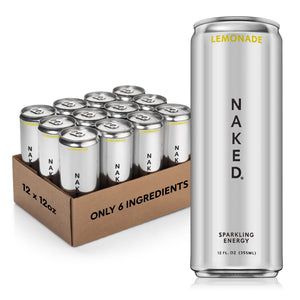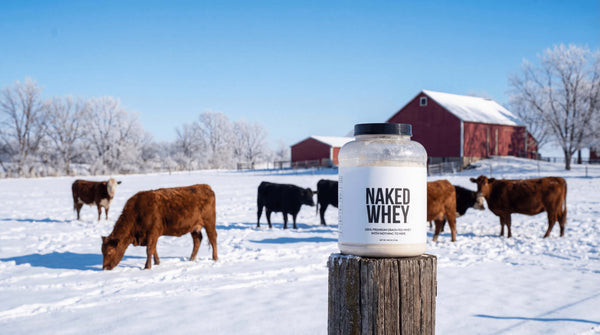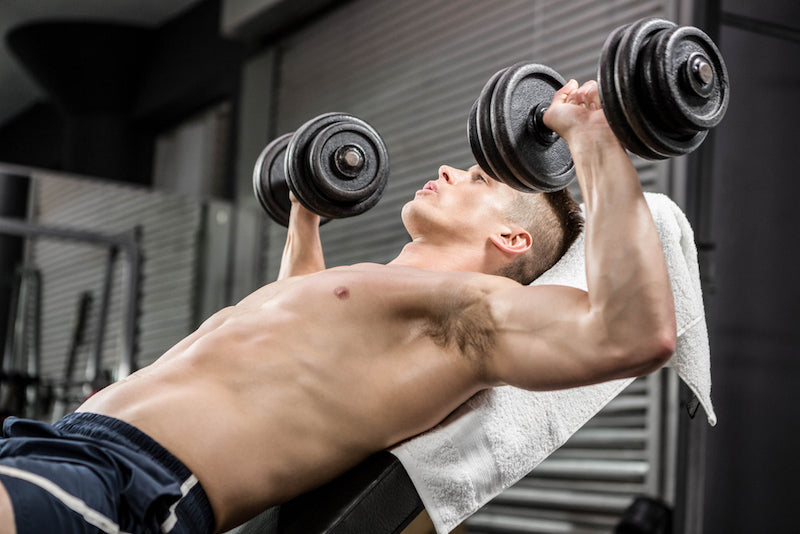Quienes recién comienzan a tomar suplementos de monohidrato de creatina pueden experimentar una leve hinchazón y aumento de peso debido a la retención de agua, particularmente en la fase de carga.
Sin embargo, la hinchazón causada por la retención de líquidos es temporal y, por lo general, desaparece por sí sola. Además, la retención de líquidos suele significar que la creatina se encuentra en las células musculares, lo que incluso puede beneficiar el rendimiento.
Este artículo explicará todo lo que necesita saber sobre los efectos de la suplementación con creatina, cómo puede provocar retención de agua y cómo puede mitigar estos efectos.

Puntos clave sobre la suplementación con creatina y la retención de agua
-
La suplementación con monohidrato de creatina se asocia con muchos beneficios para la salud y el rendimiento, incluido el aumento de la masa muscular esquelética a través de un aumento en la síntesis de proteínas musculares, el aumento de la masa corporal magra, la mejora del rendimiento físico y el aumento de la fuerza.
-
La creatina es osmóticamente activa, lo que significa que atrae agua hacia las células. Esta reacción bioquímica es uno de los efectos de la suplementación con creatina y explica por qué la suplementación con creatina puede resultar en un aumento temporal de la retención de agua y el aumento de peso.
-
La retención de agua por la suplementación con creatina puede ayudar a mejorar el rendimiento al mejorar nuestra capacidad para regular la temperatura corporal durante el ejercicio y estimular la síntesis de proteínas musculares. También puede ayudar a aumentar la masa corporal magra con el tiempo.
-
Para ayudar a aliviar la retención de líquidos por la suplementación con creatina, se recomienda mantenerse hidratado, asegurarse de tomar la dosis correcta de creatina y de tomarla en el momento adecuado. Aunque pueda parecer contradictorio, hidratarse bien puede reducir la retención de líquidos.
-
Debido a que uno de los efectos de la suplementación con creatina es la retención de agua, algunas personas optan por omitir la fase de carga por completo para evitar este efecto secundario.

¿Cómo funciona la creatina?
La creatina es un compuesto que se encuentra principalmente en los tejidos musculares esqueléticos y que se produce de forma natural a partir de los aminoácidos arginina, glicina y metionina. Un aminoácido es un componente básico de las proteínas y la creatina es un aminoácido no proteico que se produce de forma natural.
La suplementación con creatina aumenta la disponibilidad de fosfocreatina en los músculos, que puede convertirse rápidamente en ATP durante breves períodos de ejercicio intenso. Este proceso no solo mejora el rendimiento, sino que también ayuda a retrasar la fatiga, lo que permite a los atletas esforzarse más y recuperarse más rápido entre series.
El cuerpo produce creatina principalmente en el hígado, los riñones y el páncreas. La creatina se almacena en los músculos y se utiliza para producir energía durante actividades de alta intensidad a través del sistema energético del fosfato de creatina.
Puedes obtener creatina al consumir productos animales como carne, pescado, aves y productos lácteos. Sin embargo, tu cuerpo también puede producir una pequeña cantidad de creatina, alrededor de 1 a 2 gramos por día, que se almacena en el tejido muscular [].
La suplementación con monohidrato de creatina (generalmente HCL o monohidrato ) ayuda a proporcionar energía a los músculos en forma de trifosfato de adenosina (ATP), que es la fuente de combustible clave para la contracción muscular. El monohidrato de creatina es la forma más común de creatina que se encuentra en los suplementos de creatina, sin embargo, algunos suplementos contienen monohidrato de creatina.
La actividad de alta intensidad puede agotar rápidamente el ATP en los músculos y tener mayores concentraciones de creatina presentes en el tejido muscular esquelético puede ayudar a aumentar la producción de ATP para un entrenamiento de mayor calidad.

¿Qué es la concentración de creatina muscular?
La concentración de creatina muscular es la cantidad de creatina presente en el tejido muscular.
Aquellos que consumen una dieta estándar que contiene proteínas animales probablemente consumen alrededor de 1 a 2 gramos de creatina por día en promedio, lo que equivale a reservas de creatina de aproximadamente el 60-80% de su capacidad [].
Para maximizar sus reservas de creatina para un rendimiento óptimo lo más rápido posible, a menudo se recomienda una fase de carga de suplementación de creatina.
Las investigaciones sugieren que se ha demostrado que la carga muscular de creatina, específicamente en hombres, mejora la fuerza y la masa muscular, mejorando así la composición corporal general.
Una fase de carga implica tomar de 20 a 25 gramos de suplementos de creatina al día durante 5 a 7 días para saturar los músculos. Al participar en una fase de carga de creatina muscular, las personas pueden aumentar de manera eficaz y eficiente sus reservas de creatina hasta en un 40 %.
La creación de una carga suele ir seguida de una dosis de mantenimiento de 3 a 5 gramos de suplementación de creatina por día [ 4 , 5 , 6 ].
¿La suplementación con creatina causa retención de agua?

Al analizar los efectos de la suplementación con creatina, muchas personas se preocupan de cómo la creatina aumenta la retención de agua.
La fase de carga de la suplementación con creatina puede provocar hinchazón en algunas personas.
La retención de agua durante la fase de carga suele considerarse un inconveniente, pero se trata de una respuesta fisiológica normal. El aumento de creatina y agua en los músculos suele dar lugar a un aspecto más lleno y voluminoso, algo que muchos deportistas consideran beneficioso para su estética física.
La suplementación con monohidrato de creatina puede reflejar un ligero aumento de la masa corporal debido a un aumento de la masa corporal magra y la retención de agua en el tejido muscular. La creatina es osmóticamente activa, lo que significa que atrae agua con ella. Si aumenta la creatina en los músculos, aumenta simultáneamente el líquido [ 7 , 8 ].
Si recién comienza a tomar suplementos de creatina y planea pasar por una fase de carga de un ciclo de creatina , puede esperar ganar entre un 1 y un 2 % de masa corporal durante este tiempo. Sin embargo, la mayor parte de este peso es resultado de la retención de agua.
Aunque no parezca ideal, este aumento de la retención de agua no durará mucho. De hecho, la retención de agua por la carga de creatina suele resolverse por sí sola unas semanas después del período de carga [ 9 ].
Con el tiempo, los efectos de la suplementación con creatina son muy positivos en la composición corporal y la masa corporal magra, siempre que sigas un plan de nutrición y entrenamiento óptimos.
Si bien la suplementación con creatina puede provocar una ligera retención de agua en los músculos, principalmente debido a sus propiedades osmóticas, es importante tener en cuenta que las bombas de sodio y potasio en nuestras células trabajan continuamente para mantener el equilibrio esencial de electrolitos y la distribución de líquidos.
¿Puede la retención de líquidos mejorar el rendimiento?

Si bien la retención de agua por la suplementación con creatina parece algo malo, en realidad puede ayudar a mejorar el rendimiento y aumentar la fuerza muscular.
La retención de agua en los músculos puede ayudar a regular la temperatura. Además, la retención de agua también puede mejorar la entrega de nutrientes y la eliminación de desechos. Este entorno metabólico mejorado favorece una mejor función muscular general y la resistencia durante los entrenamientos, lo que contribuye a sesiones de entrenamiento más efectivas.
El agua adicional que se obtiene con la suplementación con creatina y la retención de agua de creatina pueden ayudar a hidratar los músculos y mejorar la capacidad de regular el calor durante el ejercicio intenso. Esto puede reducir el riesgo de enfermedades relacionadas con el calor en quienes entrenan en climas cálidos y húmedos [ 10 ].
Además, el aumento del volumen del tejido muscular a partir de la retención de agua de creatina puede ayudar a estimular la síntesis de proteínas musculares (SPM), el proceso de creación de nuevo tejido de masa muscular magra [ 11 ].
¿Qué es la hinchazón celular y la señal anabólica?

La hinchazón celular es simplemente otra forma de describir la retención de agua.
Los efectos osmóticos de la creatina crean lo que se conoce como hinchazón celular. Según las investigaciones, el fenómeno de la hinchazón celular es esencial para estimular la síntesis de proteínas musculares, ya que actúa como una señal de proliferación anabólica. La hinchazón celular indica al cuerpo que el entorno es favorable para la creación de nuevo tejido muscular [ 11 ].
Además, la creatina y la suplementación con creatina pueden ayudar a señalizar el factor de crecimiento similar a la insulina-1, una hormona importante necesaria para el crecimiento de la masa muscular [ 12 ].
Beneficios de la suplementación con creatina y efectos de la creatina

La suplementación con monohidrato de creatina se asocia con muchos beneficios para la salud y el rendimiento, entre ellos, el aumento de la masa muscular, la mejora del rendimiento deportivo y una mejor composición corporal. En la siguiente sección se describirán algunos de los efectos beneficiosos más conocidos de la suplementación con creatina.
Aumento de la masa muscular y crecimiento muscular
La suplementación con monohidrato de creatina puede ayudar a acelerar el crecimiento del músculo esquelético al activar vías esenciales para la síntesis de proteínas musculares. La síntesis de proteínas musculares es el proceso metabólico en el que el cuerpo convierte los aminoácidos en nuevas proteínas para formar nuevo tejido muscular.
De hecho, un estudio descubrió que quienes tomaron suplementos de creatina durante 6 semanas ganaron 4,4 libras adicionales de masa muscular en comparación con el grupo de control [ 13 ].
El aumento de peso que las personas suelen experimentar después de tomar suplementos de creatina puede ser el resultado del aumento de la masa muscular magra y del crecimiento muscular.
Entonces, aunque la báscula pueda mostrar un número ligeramente más alto, también es posible que disfrutes de una mejor composición corporal ya que la suplementación con creatina estimula la síntesis de proteínas musculares.
Mejora el rendimiento del ejercicio
Tomar suplementos de creatina contribuye a la producción de ATP en las células musculares. El ATP puede ayudar a mejorar la producción de energía durante el ejercicio de alta intensidad.
Cuando hay más ATP disponible, hay más posibilidades de mejorar el rendimiento atlético. Una revisión científica descubrió que la suplementación con creatina podría mejorar el rendimiento deportivo hasta en un 15 % [ 14 ].
Aumenta la fuerza muscular, la masa muscular y la composición corporal.

Cuando se combina con ejercicios de resistencia, la suplementación con creatina puede ayudar a mejorar la composición corporal general. Ya sea que estés tomando una dosis baja de creatina o una dosis de carga, las reservas de creatina en los músculos aumentan y conducen a mejoras en la fuerza y la masa muscular.
Además de mejorar el rendimiento deportivo, la suplementación con creatina también puede ayudar a aumentar la fuerza, el crecimiento muscular y la masa muscular esquelética. Especialmente para los deportistas, una composición corporal ideal es aquella con un alto nivel de masa corporal magra y un bajo nivel de grasa corporal, que es exactamente lo que la creatina ayuda al cuerpo a lograr.
La presencia de mayor energía en el tejido muscular te permite trabajar más duro durante tus sesiones de ejercicios de resistencia con menos fatiga. Esta mayor energía disponible permite realizar más repeticiones y más peso en un período más corto, lo que te ayuda a desarrollar fuerza y masa muscular de manera más rápida y eficaz.
Además de sus propiedades de aumento inmediato de la energía, la creatina promueve el crecimiento muscular a largo plazo al mejorar la hidratación celular. La hidratación mejorada no solo aumenta el volumen celular, sino que también envía señales a las vías anabólicas que contribuyen a la síntesis y el crecimiento de las proteínas musculares. La suplementación regular garantiza que las reservas de creatina muscular se mantengan llenas, lo que favorece las ganancias continuas.
Mejora la función cognitiva
La creatina también favorece la salud cerebral al mejorar la producción de ATP en los tejidos neuronales. Algunas investigaciones científicas sugieren que la suplementación con creatina puede mejorar la función cognitiva, en particular en tareas que requieren habilidades de memoria a corto plazo y pensamiento rápido. Claramente, los beneficios de la creatina se extienden más allá de simplemente aumentar la fuerza muscular, ya que potencialmente también puede ayudar al rendimiento profesional.
Beneficios de la suplementación con creatina para mujeres

Las mujeres que ingieren creatina pueden beneficiarse tanto como los hombres. Si bien algunos suplementos están orientados más a los hombres y otros a las mujeres, la creatina no es uno de ellos. Se ha demostrado que la creatina mejora la fuerza muscular, aumenta los niveles de creatina muscular, mejora la composición corporal y mejora el rendimiento atlético general en las mujeres.
Algunas mujeres pueden estar más preocupadas por la retención de agua como resultado de los suplementos de creatina, sin embargo, los efectos son temporales.
Para las mujeres que desean aumentar su masa magra incrementando el contenido de creatina en su cuerpo, existe evidencia científica que demuestra que tomar suplementos de creatina diariamente puede ayudar a las mujeres a lograrlo, cuando se combina con entrenamiento de resistencia.
Además de la creatina dietética, un suplemento oral adicional de creatina ayuda a mejorar el rendimiento muscular durante los entrenamientos y conduce a mejores resultados.
En el caso de las mujeres, la creatina también puede contribuir a la salud de los huesos. Las investigaciones sugieren que la suplementación con creatina, junto con el entrenamiento de resistencia, puede aumentar la densidad mineral ósea. Las mujeres que no solo buscan aumentar la masa muscular pueden beneficiarse sin duda de la creatina, ya que puede mejorar la fuerza ósea, que es vital para la salud a largo plazo.
¿La suplementación con creatina causa aumento de peso?
La suplementación con monohidrato de creatina produce un aumento de peso a corto plazo durante la fase de carga. Sin embargo, el aumento de peso durante este período está relacionado con un aumento de la retención de agua y no es un verdadero aumento de peso.
Si bien algunas personas pueden preocuparse por el aumento de peso que produce la creatina, es fundamental diferenciar entre el aumento de peso por agua y el aumento de grasa. La creatina no aumenta la masa grasa, sino que favorece el desarrollo de tejido muscular magro, que es más denso que la grasa. Por lo tanto, cualquier aumento de peso suele ser un signo de aumento de la masa muscular y una mejor composición corporal.
La retención de agua se resolverá en unas pocas semanas a medida que la distribución de líquidos encuentre el equilibrio después de la fase de carga de suplementación de creatina, y la composición corporal no debería ser una preocupación para la suplementación de creatina.
La suplementación con creatina puede aumentar la masa muscular, y cualquier aumento de peso debido a la suplementación con creatina es más probable que se deba a un aumento de la masa muscular que de la masa grasa.
Con el tiempo, cuando se combina con el entrenamiento de resistencia, los niveles de creatina muscular aumentarán en todo el cuerpo y la fuerza y la masa muscular también aumentarán. Esta mejora en la composición corporal probablemente conducirá a un aumento de peso. Sin embargo, este aumento de peso es el resultado del músculo. Recuerde, el músculo pesa más que la grasa, por lo que este cambio en el peso corporal es un reflejo del arduo trabajo que ha estado realizando.
Para comprender mejor su composición corporal única, puede ser útil evaluarla utilizando tecnología que puede determinar el porcentaje de su peso corporal que proviene de grasa, músculo y retención de agua.
¿Mis ganancias son solo agua?

Por supuesto, cuando las personas comienzan a tomar monohidrato de creatina, probablemente busquen aumentar la masa muscular. Sin embargo, debido a que la suplementación con creatina a menudo conduce a la retención de agua, puede resultar confuso determinar si las ganancias provienen de la masa muscular o si son resultado del peso del agua o de la retención de agua.
Si bien el aumento de peso durante la carga de suplementación con creatina contribuye en gran medida a la retención de agua, no es solo el agua la que hace que la báscula fluctúe.
Recuerde que tomar monohidrato de creatina oral de forma regular aumenta la masa muscular esquelética, siempre y cuando realice ejercicios de entrenamiento de fuerza de forma regular [ 9 ]. Por lo tanto, si puede aumentar el volumen de ejercicio con creatina, en realidad aumentará la masa corporal magra con el tiempo.
Es importante no preocuparse demasiado por la proporción de su aumento de peso debido a la retención de agua en comparación con la masa muscular. Con el tiempo, la retención de agua se disipará y será más evidente ver los resultados de su aumento de masa muscular.
Lea también: ¿Cuánta agua beber con creatina?
¿Cómo aliviar la retención ocasional de agua causada por la suplementación con creatina?

Aunque la retención de agua por creatina es común, no todo el mundo experimentará hinchazón y aumento de peso como uno de los efectos de la suplementación con creatina. Si le preocupa la retención de agua por creatina, hay algunas cosas que pueden ayudar a aliviar los síntomas, como mantenerse hidratado.
Para reducir la probabilidad de experimentar efectos negativos de la creatina, asegúrese de estar tomando la dosis adecuada de monohidrato de creatina, tomándola en el momento adecuado o salteándose la fase de carga por completo.
Aumentar la ingesta de agua
Aunque pueda parecer contradictorio, mantenerse adecuadamente hidratado puede aliviar los efectos de la retención de agua de creatina causada por la suplementación con creatina.
Tomar suplementos de creatina atrae temporalmente el exceso de agua al tejido muscular, y consumir grandes cantidades de suplementos de creatina puede provocar deshidratación, lo que puede empeorar aún más los síntomas de hinchazón.
Durante este tiempo, es importante reemplazar lo que llega a los músculos aumentando la ingesta de agua durante el día para contrarrestar estos efectos de la suplementación con creatina.
Tome la dosis correcta
Al igual que con cualquier suplemento, es fundamental tomar la dosis recomendada. No solo obtendrás los mejores resultados, sino que también podrás reducir significativamente el potencial de efectos secundarios de la creatina si sigues las pautas de dosificación. Además, tomar la dosis correcta puede ayudar a garantizar tu seguridad y la eficacia del suplemento.
Tomar suplementos de creatina en la dosis adecuada también puede reducir el grado de retención de agua que pueda experimentar.
Cuanto más suplementos de creatina consumas, más agua se moverá hacia tu tejido muscular y se agravará aún más la retención de agua de creatina.
Las investigaciones actuales respaldan una dosis de carga de 20 a 25 gramos por día durante un máximo de 5 a 7 días, seguida de una dosis de mantenimiento de 3 a 5 gramos por día. Durante la fase de carga, es mejor dividir los 25 gramos y tomar solo 5 gramos aproximadamente a la vez. Esto ayuda a la absorción y reduce el riesgo de efectos secundarios como la retención de líquidos.
Debido a que la carga de creatina muscular implica tomar una gran dosis de creatina durante un corto período de tiempo, es importante asegurarse de estar tomando la dosis correcta de suplementación de creatina.
Evite tomar dosis de suplementación de creatina superiores a 30 gramos [ 4 , 5 , 6 , 15 ].
Si no eliges realizar una fase de carga de creatina, se recomienda tomar una dosis diaria de mantenimiento de 3 a 5 gramos al día.
Hazlo en el momento justo

Otra forma de ayudar con la hinchazón de creatina es asegurarse de sincronizar la ingesta de suplementos de creatina con su rutina de ejercicios, esto ayuda a maximizar la absorción.
Ya sea que elijas hacer esto antes, durante o después del ejercicio, asegúrate de ser constante. Evita tomar grandes dosis de suplementos de creatina en los días en que no entrenas.
Omitir la fase de carga por completo
Si le preocupa la retención de agua de creatina, también puede omitir la carga de creatina por completo.
No es necesario realizar una dosis de carga con la suplementación con creatina y algunos estudios han descubierto que una dosis menor de creatina puede ser igualmente efectiva para aumentar las reservas de creatina muscular [ 16 , 17 ]. Además, el rendimiento muscular durante el ejercicio puede ser igualmente efectivo a largo plazo independientemente de si comienza o no con una dosis de fase de carga.
En lugar de la fase de carga, puedes empezar a tomar de 3 a 5 gramos de creatina al día. Aunque es posible que no notes los resultados tan rápido en comparación con la fase de carga, es igual de eficaz. Además, el riesgo de retención de líquidos es mucho menor cuando evitas la fase de carga.
Preguntas frecuentes sobre la retención de agua por creatina

Esto es lo que necesita saber sobre la retención de agua de creatina y la posterior suplementación con creatina.
¿La retención de agua por la suplementación con creatina desaparece?
No hay necesidad de preocuparse por la retención de agua de creatina debido a la suplementación con creatina. La retención de agua causada por la suplementación con creatina es temporal y normalmente se resolverá por sí sola unas semanas después del ciclo de carga. Incluso puede mejorar la masa corporal magra con el tiempo. Tenga en cuenta que los cambios en el peso corporal probablemente no sean un reflejo de aumentos en la masa grasa, sino más bien una combinación de masa muscular y retención de líquidos.
Si sufres de hinchazón o malestar persistentes, tal vez valga la pena revisar tu dieta general y tus niveles de hidratación. A veces, otros factores dietéticos pueden exacerbar la retención de agua, y garantizar una ingesta equilibrada de electrolitos puede ayudar a mitigar estos efectos.
¿La suplementación con creatina te hace sentir hinchado?
Dado que tomar suplementos de creatina puede causar retención de líquidos, es posible que te sientas hinchado o hinchado. Aunque estos efectos secundarios pueden resultar incómodos para algunas personas, son temporales y no son motivo de preocupación en lo que respecta a la masa corporal general o el peso corporal.
¿La creatina da un aspecto hinchado?
Algunas personas pueden experimentar hinchazón como resultado de la suplementación con creatina. El hecho de que esta hinchazón sea o no físicamente perceptible dependerá de cada persona. Es importante recordar que la hinchazón que experimentan algunas personas es en gran medida el resultado de la retención de líquidos.
El aspecto hinchado que preocupa a muchas personas puede no estar necesariamente relacionado con la hinchazón estomacal, sino que también puede referirse a la retención de agua en otras partes del cuerpo, como los brazos y las piernas.
¿Te ves más grande después de tomar creatina?

Debido a que la creatina atrae líquido hacia el tejido muscular, la suplementación con creatina puede dar la apariencia de músculos más grandes durante este período. Sin embargo, la retención de agua de la creatina está relacionada principalmente con el aumento de agua y se reducirá con el tiempo, lo que puede dejarte con una mejor masa muscular esquelética. Las verdaderas ganancias de la suplementación con creatina son el resultado de una mayor síntesis de proteína muscular, lo que conduce a un aumento de la masa muscular.
Puntos clave
Tomar suplementos de creatina por vía oral puede provocar retención de líquidos y, a menudo, hace que las personas se preocupen por el aumento de peso debido a la ingesta de líquidos. Sin embargo, es importante entender que la retención de líquidos causada por la creatina es temporal y es en gran medida un indicador de que el suplemento está funcionando, ya que, después de todo, se trata de una sustancia osmóticamente activa.
Para reducir el riesgo de retención de líquidos, hay medidas que se pueden tomar, como adoptar una rutina de suplementación con creatina en dosis bajas, aumentar la hidratación o saltarse por completo la fase de carga. En comparación con el entrenamiento de resistencia, la creatina ayuda a aumentar significativamente el rendimiento muscular, aumentar la masa muscular, reducir la grasa corporal y mejorar el rendimiento deportivo.
Lectura adicional:







